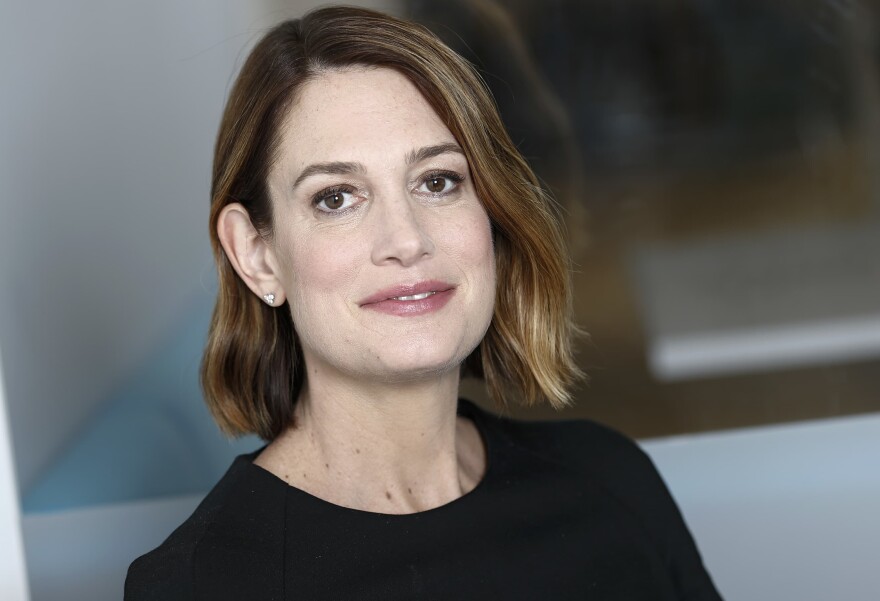Author Gillian Flynn is known for creating disturbing worlds in her thrillers “Gone Girl” and “Sharp Objects.”
The first became a hit film, and the second, an Emmy-nominated TV series. Now, she’s the showrunner and creator of “Utopia,” a new Amazon series that’s even darker than her previous tales.
The show tells the story of a graphic novel that has eerie parallels to real life, assassins who are willing to kill anyone who’s seen a page of it and a mysterious virus that’s killing children.
Flynn admits the show is harrowing but adds, “People would be surprised to hear if I had written a romantic comedy.” She says she immerses herself in these ghastly universes because she is someone who has “always loved a good scare.”
“I don’t know if, you know, I’m able to exorcise my demons through writing about the darker side, but I certainly have always been someone who is interested in the darker side of human nature,” she says. “I think the world can be divided into people who like to look under the rock and people who don’t, and I’ve always been the person who has said, “Let’s flip over the rock!”
Interview Highlights
On the friends who can’t read her books or watch her TV and film work
“I have large swaths of friends who have never read or seen anything I’ve done because they are just not into thrillers. They don’t like to be scared, and I always say, ‘That is absolutely fine. I don’t come to our office and sit and watch you do accounting or anything like that.’ So I do not take it personally.”
On Jessica Hyde, the central character of “Utopia”
“She is after one thing which is to find her father who’s been kidnapped and that will hold the secrets to why people are after her, what she’s supposed to do. To me, she’s sort of kind of a statement about where we all are existentially, which are those questions of ‘Why am I here? What am I supposed to do? What’s my meaning? What’s my purpose?’ ”
On why writing mysteries and thrillers suits her (and why she thinks she’ll never write a romance novel)
“I don’t know that I would be good at that, to tell you the truth. I think, know your limitations. I love writing mysteries and I love writing thrillers because to me, they’re a great way to talk about bigger themes. With ‘Gone Girl’ for instance, I wanted to talk about marriage and gender roles, and ‘Sharp Objects’ I wanted to talk about what female violence looked like especially cyclically and generationally. And that was when I first realized, after I’d written a hundred pages of people sitting around and talking in rooms in a very not interesting way, that if I could tie it to a mystery that would give me that engine to pull it through.
“And what I like about that is it gives a means and a vocabulary for people to talk about these bigger issues without feeling like homework. I’ve never felt like it was bad to be entertaining, I mean, I’ve always really … I never have set out to be the book that sits on your nightstand waiting to be read because you know you should and you know, you respect it, or sits on your DVR piling up, episode after episode and you [say], ‘I know I should watch this.’ I really like being a page-turner or a cliff hanger but still being able to sneak in those larger themes that I like, and people, if they just want to have a good thriller, you can just engage on that level, but if you find some interesting themes, then you can have more to talk about.”
Emiko Tamagawa produced and edited this interview for broadcast and adapted it for the web.
This article was originally published on WBUR.org.
Copyright 2020 NPR. To see more, visit https://www.npr.org. 9(MDAwMTM1NDgzMDEyMzg2MDcwMzJjODJiYQ004))


